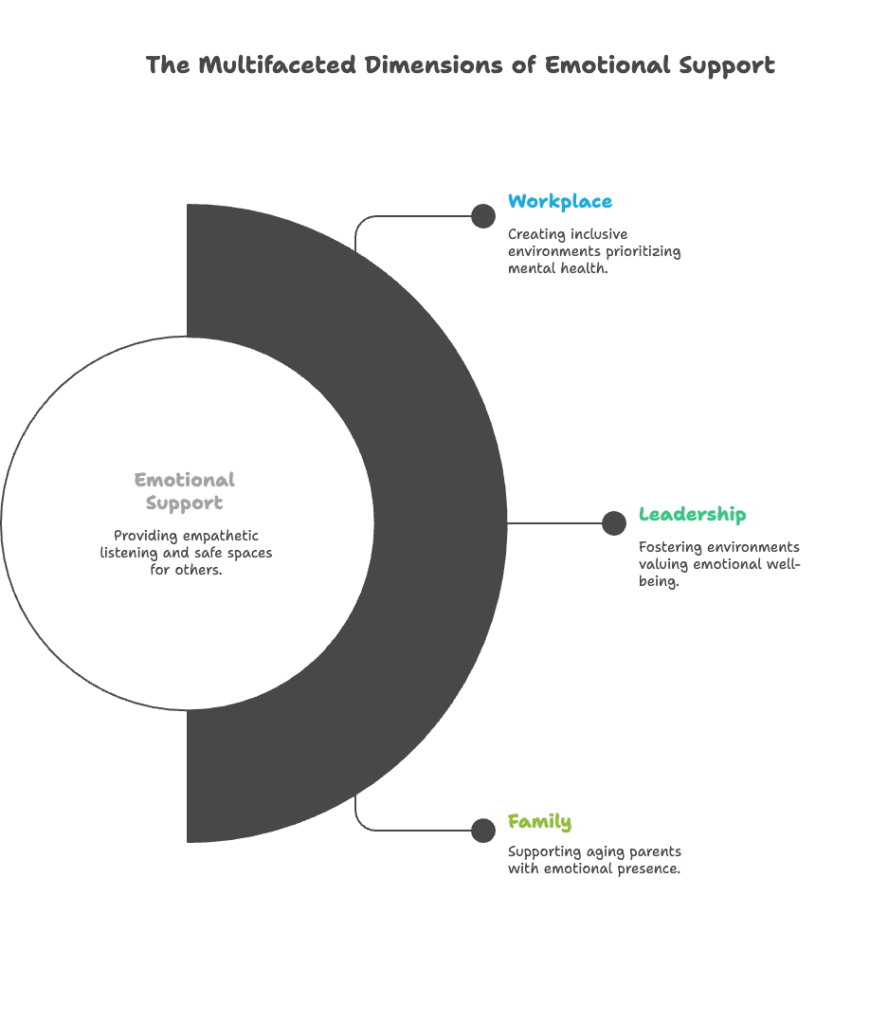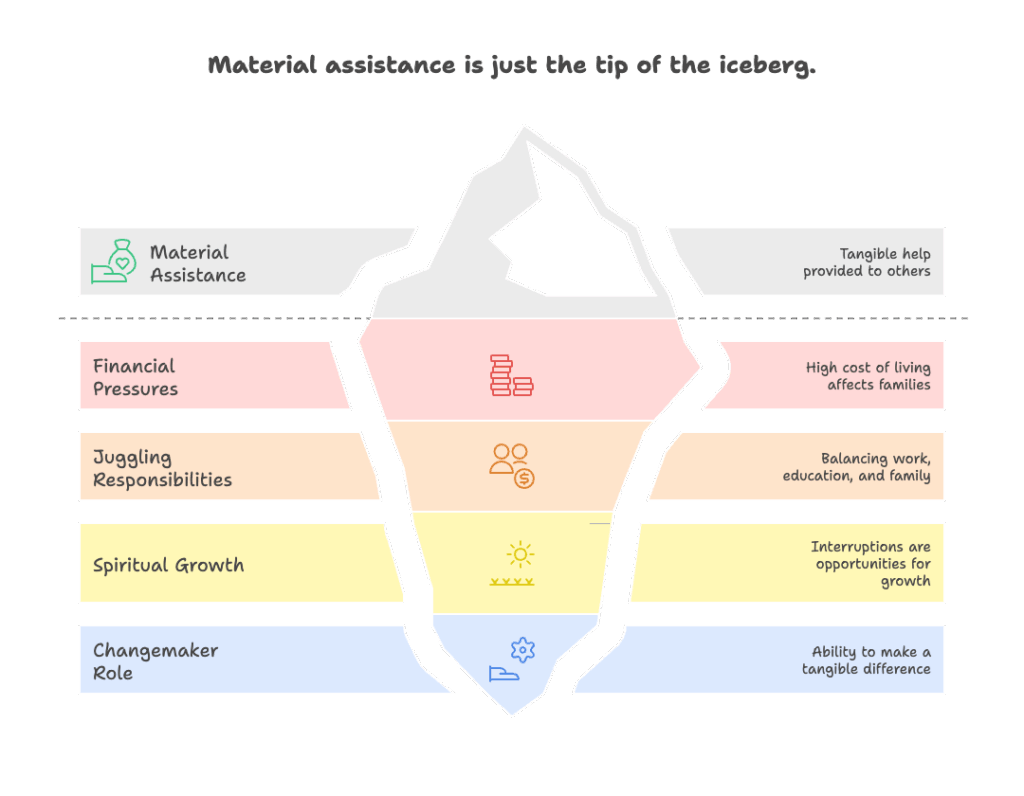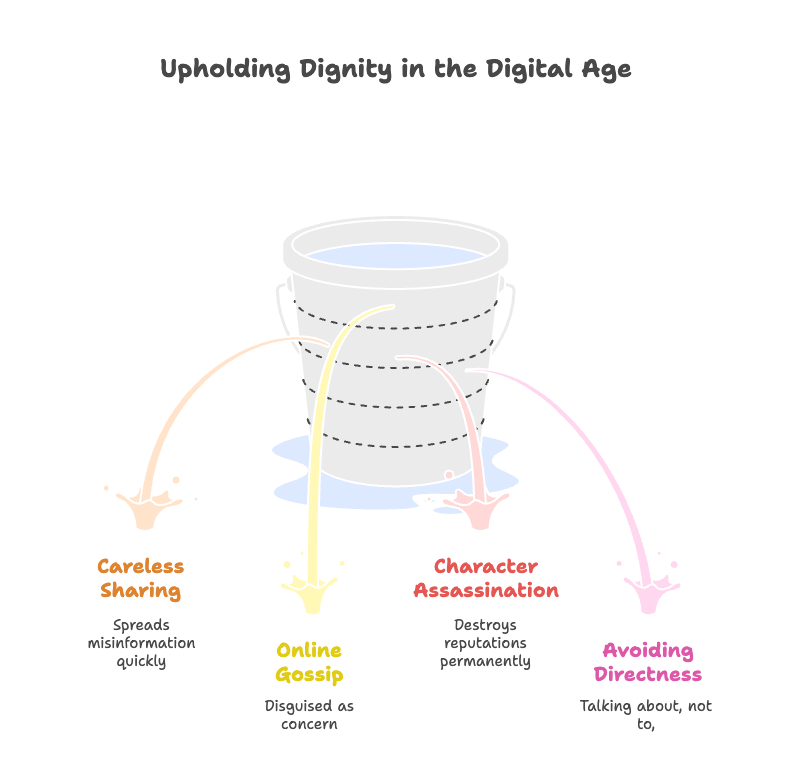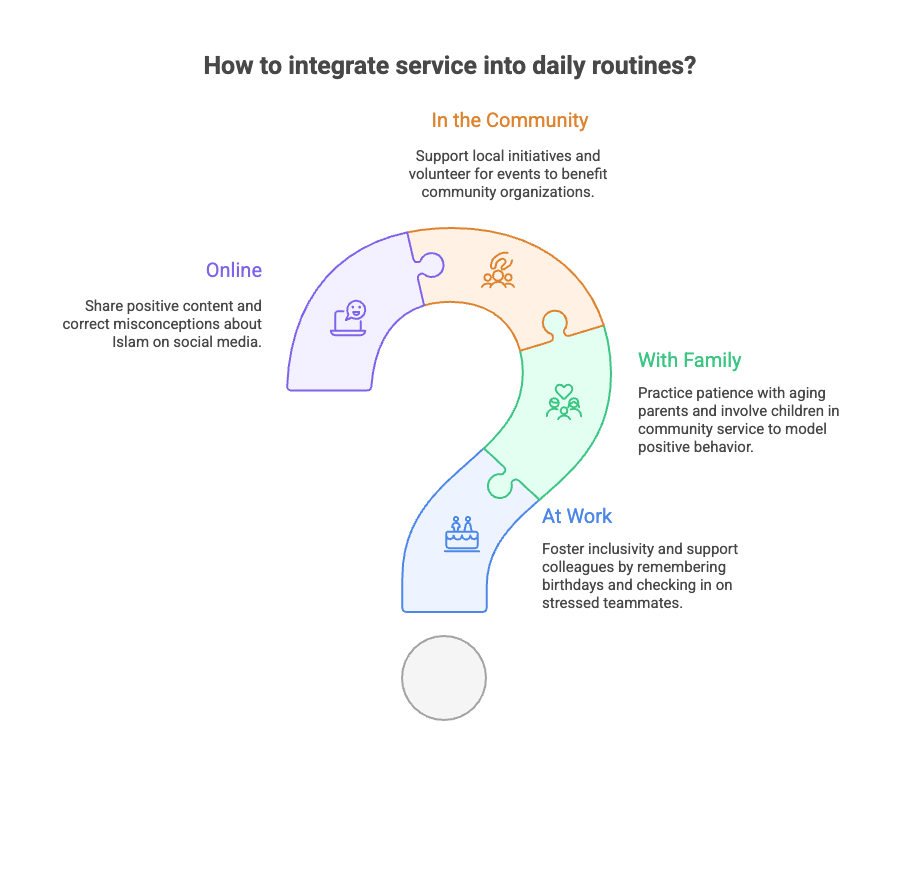Reflections on “Attaining Divine Assistance Through Serving Others” – Friday Sermon, 15 August 2025

The Reality Check I Didn’t Know I Needed
Here’s the thing about being a changemaker – everyone expects you to have it all figured out.
You’re supposed to be the perfect Muslim (five prayers, check), the model citizen (contributing to racial harmony, check), the ideal family member (caring for aging parents while raising good kids, check), and somehow still have energy left to do dakwah.
Most days, I feel like I’m barely keeping my head above water.
When the imam talked about people who pray but don’t help others, I felt that sting of recognition. Not because I don’t help – I’m drowning in helping – but because sometimes my prayers feel disconnected from the chaos of actually living.
Like I’m checking a box rather than finding strength for the marathon that is modern Muslim life.
Beyond Ritual Worship: The True Test of Faith
The sermon’s opening message strikes at the heart of what it means to be a changemaker in Singapore. The criticism of those who pray but fail to help others resonates deeply with our modern reality.
It’s easy to get caught up in the mechanics of religious observance – performing our five daily prayers, reciting the Quran, fasting during Ramadan – while neglecting the broader Islamic imperative to serve humanity.
As changemakers, we often find ourselves at the intersection of multiple responsibilities.
We rush from morning prayers to board meetings, squeeze in Quran recitation between helping children with homework and attending to our elderly parents, and try to engage in meaningful dakwah while meeting professional deadlines.
The sermon reminds us that true closeness to Allah isn’t achieved through ritual acts alone, but through the integration of worship with genuine service to others.
The Three-Part Reality Check
The hadith the imam shared about three types of help hit different when you’re living it:
1. Emotional Support

“Whoever relieves a Muslim of a burden…”
This might mean being the colleague who listens without judgment when a teammate shares personal struggles, regardless of their faith background.
It could involve creating safe spaces in our workplaces where people feel heard and valued.
For those of us in leadership positions, it means fostering environments where mental health and emotional well-being are prioritized.
In our families, this principle becomes even more critical. Aging parents often struggle with feelings of irrelevance or worry about being a burden to their children.
Our emotional presence – sitting with them, listening to their stories, validating their concerns – becomes a form of worship that brings us closer to divine mercy – that’s ibadah too
2. Material Assistance

“Whoever eases the affairs of a person in difficulty…”
Singapore’s high cost of living means that financial pressures are real for many families, including our own.
Some of our brothers and sisters are juggling between making ends meet, getting a degree, and being a responsible parent.
This reminded me that these interruptions to my carefully planned days aren’t obstacles to my spiritual growth – they ARE my spiritual growth.
As changemakers, we’re often in positions where we can make a tangible difference.
This might involve connecting community members with available government assistance programs, organizing mosque-based support initiatives, or simply offering practical help like transportation for elderly neighbors to medical appointments.
Are we doing this? If we do, is it enough?
3. Preserving Dignity (The Hardest One in the Social Media Era)

“Whoever conceals the faults of a Muslim…”
The third form of assistance – preserving dignity – carries particular weight in our hyperconnected world.
Social media and instant communication have made it easier than ever to damage someone’s reputation, whether intentionally or through careless sharing of information.
For Muslim changemakers, this principle extends beyond simply avoiding gossip.
It means being the voice that redirects conversations away from character assassination, even when the target might “deserve” criticism.
It involves being thoughtful about what we share online and how we frame our advocacy work.
The sermon hit hard when it talked about advising and correcting “in the most suitable way.” How often do I share “concerns” about community members that are just gossip with Islamic packaging?
Being a changemaker means sometimes being the person who changes the conversation. It means being the one who says, “Let’s talk to him directly instead of about him.”
It means protecting people’s dignity even when they’ve made mistakes, even when it would be easier to join the pile-on.
The Exhaustion Is Real, But So Is the Purpose
The sermon’s call to serve others might seem overwhelming when we’re already struggling to balance multiple responsibilities.
How do we serve others when we’re exhausted from taking care of aging parents?
How do we engage in community work when our careers demand long hours?
How do we maintain our own spiritual growth while supporting our children’s development?
The answer lies in understanding that service doesn’t always require grand gestures or significant time commitments.
Sometimes, the most meaningful service happens in the small moments – the patient conversation with an elderly parent who repeats the same story, the extra effort to ensure a non-Muslim colleague feels included during team lunch planning during Ramadan, or the gentle correction of a family member’s misconception about other faiths..
Practical Implementation: Small Steps, Big Impact

For busy changemakers, the key is to integrate service into existing routines rather than seeing it as an additional burden:
At Work: Be the colleague who remembers birthdays, checks in on stressed teammates, and creates inclusive environments where everyone feels valued.
With Family: Practice patience with aging parents, involve children in community service activities, and model the behavior you want to see in the next generation.
In the Community: Support local mosque initiatives, volunteer for community events that bring different groups together, and use your professional skills to benefit community organizations.
Online: Use social media platforms to share positive content, correct misconceptions about Islam in respectful ways, and amplify voices working for social good.
Conclusion: The Integrated Life
Burnout is real. If you’re feeling burnt out, rest and return later. There’s no harm in asking for help. Could you talk to your fellow brothers and sisters?
The beautiful thing about today’s sermon is that it doesn’t ask us to be perfect. It asks us to be present. To show up. To serve. To help. To protect dignity. That’s it.
None of this is glamorous. Most of it won’t make it to social media. But it’s building something – a community, a legacy, a way of being Muslim in Singapore that honors both our faith and our citizenship.
